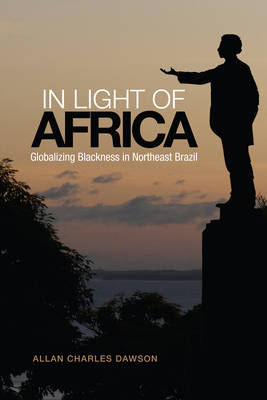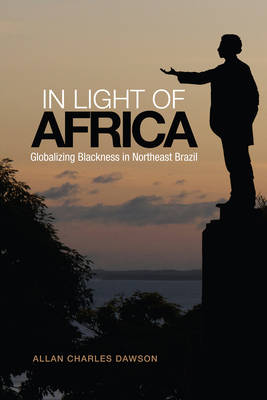
- Retrait gratuit dans votre magasin Club
- 7.000.000 titres dans notre catalogue
- Payer en toute sécurité
- Toujours un magasin près de chez vous
- Retrait gratuit dans votre magasin Club
- 7.000.0000 titres dans notre catalogue
- Payer en toute sécurité
- Toujours un magasin près de chez vous
Description
In Light of Africa explores how the idea of Africa as a real place, an imagined homeland, and a metaphor for Black identity is used in the cultural politics of the Brazilian state of Bahia. In the book, Allan Charles Dawson argues that Africa, as both a symbol and a geographical and historical place, is vital to understanding the wide range of identities and ideas about racial consciousness that exist in Bahia's Afro-Brazilian communities.
In his ethnographic research Dawson follows the idea of "Africa" from the city of Salvador to the West African coast and back to the hinterlands of the Bahian interior. Along the way, he encounters West African entrepreneurs, Afrobeat musicians, devotees of the Afro-Brazilian religion Candomblé, professors of the Yoruba language, and hardscrabble farmers and ranchers, each of whom engages with the "idea of Africa" in their own personal way.
Spécifications
Parties prenantes
- Auteur(s) :
- Editeur:
Contenu
- Nombre de pages :
- 208
- Langue:
- Anglais
- Collection :
Caractéristiques
- EAN:
- 9781442626690
- Date de parution :
- 01-10-14
- Format:
- Livre broché
- Format numérique:
- Trade paperback (VS)
- Dimensions :
- 156 mm x 228 mm
- Poids :
- 317 g

Les avis
Nous publions uniquement les avis qui respectent les conditions requises. Consultez nos conditions pour les avis.






